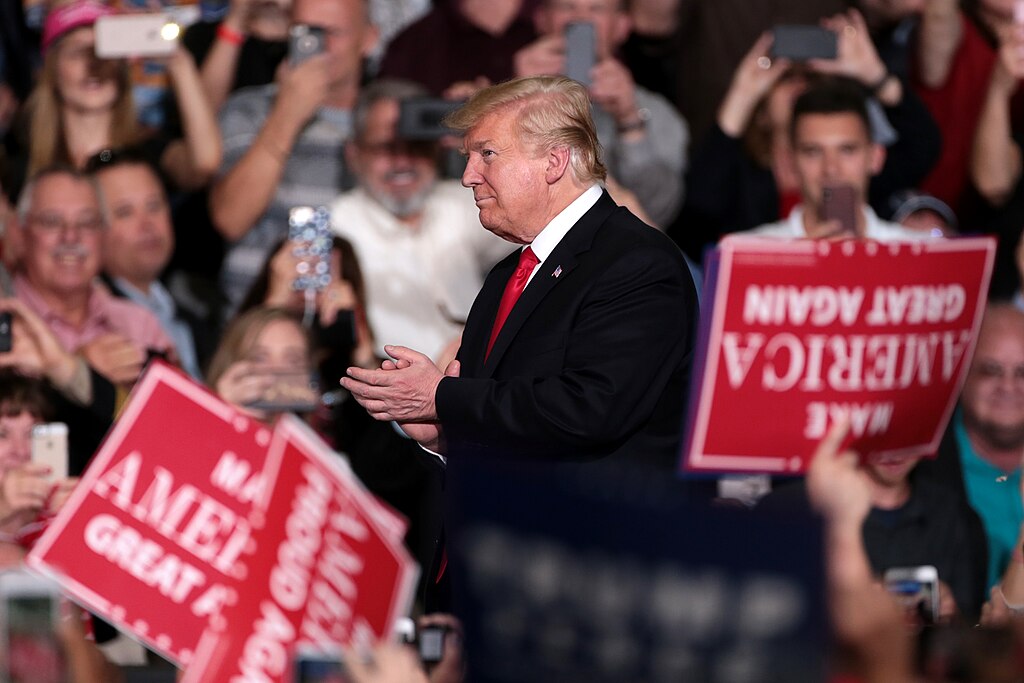As President Donald Trump prepares to commence his second term in January 2025, his administration is poised to implement a series of policies that could significantly reshape the technology industry. These initiatives encompass regulatory reforms, antitrust actions, and strategic appointments, reflecting a comprehensive approach to addressing longstanding concerns about Big Tech's influence and operations.
Antitrust Measures and Regulatory Reforms
A cornerstone of the administration's strategy involves intensifying antitrust scrutiny of major technology firms. The Department of Justice (DOJ) and the Federal Trade Commission (FTC) are expected to pursue investigations and potential breakups of companies exhibiting monopolistic behaviors. Notably, the DOJ has proposed measures to dismantle Google's dominance in the search engine market, including the sale of its Chrome browser and restrictions on its Android operating system.
Additionally, the administration plans to revisit Section 230 of the Communications Decency Act, which grants immunity to online platforms from liability for user-generated content. Proposed reforms aim to hold platforms accountable for content moderation practices, particularly concerning allegations of political bias.
Strategic Appointments
President Trump has nominated Brendan Carr as the chairman of the Federal Communications Commission (FCC). Carr, a vocal critic of Big Tech, has articulated plans to regulate social media platforms more stringently, focusing on content moderation policies. His appointment signals a shift toward increased oversight of online speech and platform accountability.
Artificial Intelligence and National Security
The administration views advancements in artificial intelligence (AI) as a critical component of national security. In response to concerns over China's progress in AI development, a bipartisan congressional commission has recommended a government initiative akin to the Manhattan Project to accelerate U.S. advancements in AI. This proposal underscores the administration's commitment to maintaining technological superiority.
Public Reaction
The administration's approach to Big Tech has elicited a spectrum of reactions:
-
@TechAdvocate: "Regulating Big Tech is necessary, but we must ensure innovation isn't stifled in the process."
-
@FreeSpeechDefender: "Holding platforms accountable for censorship is a win for free speech and democracy."
-
@MarketAnalyst: "Antitrust actions could disrupt the tech industry and have unforeseen economic consequences."
Conclusion
President Trump's 2025 policies toward Big Tech represent a concerted effort to address concerns over monopolistic practices, content moderation, and national security implications. While supporters argue that these measures are essential for preserving competition and free speech, critics caution against potential overreach and unintended economic impacts. As these initiatives unfold, the balance between regulation and innovation will remain a focal point of public discourse.



 Why did Iran bomb Dubai? A Middle East expert explains the regional alliances at play
Why did Iran bomb Dubai? A Middle East expert explains the regional alliances at play  Israel Launches Fresh Strikes on Iran After Death of Supreme Leader Ayatollah Khamenei
Israel Launches Fresh Strikes on Iran After Death of Supreme Leader Ayatollah Khamenei  Zelenskiy Urges Change in Iran After U.S. and Israeli Strikes, Cites Drone Support for Russia
Zelenskiy Urges Change in Iran After U.S. and Israeli Strikes, Cites Drone Support for Russia  Australia Rules Out Military Involvement in Iran Conflict as Middle East Tensions Escalate
Australia Rules Out Military Involvement in Iran Conflict as Middle East Tensions Escalate  Failure of US-Iran talks was all-too predictable – but Trump could still have stuck with diplomacy over strikes
Failure of US-Iran talks was all-too predictable – but Trump could still have stuck with diplomacy over strikes  EU Urges Maximum Restraint in Iran Conflict Amid Fears of Regional Escalation and Oil Supply Disruption
EU Urges Maximum Restraint in Iran Conflict Amid Fears of Regional Escalation and Oil Supply Disruption  Pentagon Downplays ‘Endless War’ Fears After U.S. Strikes on Iran Escalate Conflict
Pentagon Downplays ‘Endless War’ Fears After U.S. Strikes on Iran Escalate Conflict  Trump Warns Iran as Gulf Conflict Disrupts Oil Markets and Global Trade
Trump Warns Iran as Gulf Conflict Disrupts Oil Markets and Global Trade  UK Accepts U.S. Request to Use British Bases for Defensive Strikes on Iranian Missiles
UK Accepts U.S. Request to Use British Bases for Defensive Strikes on Iranian Missiles  Does international law still matter? The strike on the girls’ school in Iran shows why we need it
Does international law still matter? The strike on the girls’ school in Iran shows why we need it  U.S. Deploys Tomahawks, B-2 Bombers, F-35 Jets and AI Tools in Operation Epic Fury Against Iran
U.S. Deploys Tomahawks, B-2 Bombers, F-35 Jets and AI Tools in Operation Epic Fury Against Iran  Trump to Attend White House Correspondents’ Dinner 2026, Ending Long Boycott
Trump to Attend White House Correspondents’ Dinner 2026, Ending Long Boycott  Suspected Drone Strike Hits RAF Akrotiri Base in Cyprus, Causing Limited Damage
Suspected Drone Strike Hits RAF Akrotiri Base in Cyprus, Causing Limited Damage  Trump Launches Operation Epic Fury: U.S. Strikes on Iran Mark High-Risk Shift in Middle East
Trump Launches Operation Epic Fury: U.S. Strikes on Iran Mark High-Risk Shift in Middle East  Marco Rubio to Brief Congress After U.S.-Israeli Strikes on Iran
Marco Rubio to Brief Congress After U.S.-Israeli Strikes on Iran  Supreme Court Backs GOP Lawmaker in New York Redistricting Fight Ahead of Midterms
Supreme Court Backs GOP Lawmaker in New York Redistricting Fight Ahead of Midterms  Middle East Conflict Escalates After Khamenei’s Death as U.S., Israel and Iran Exchange Strikes
Middle East Conflict Escalates After Khamenei’s Death as U.S., Israel and Iran Exchange Strikes 



























